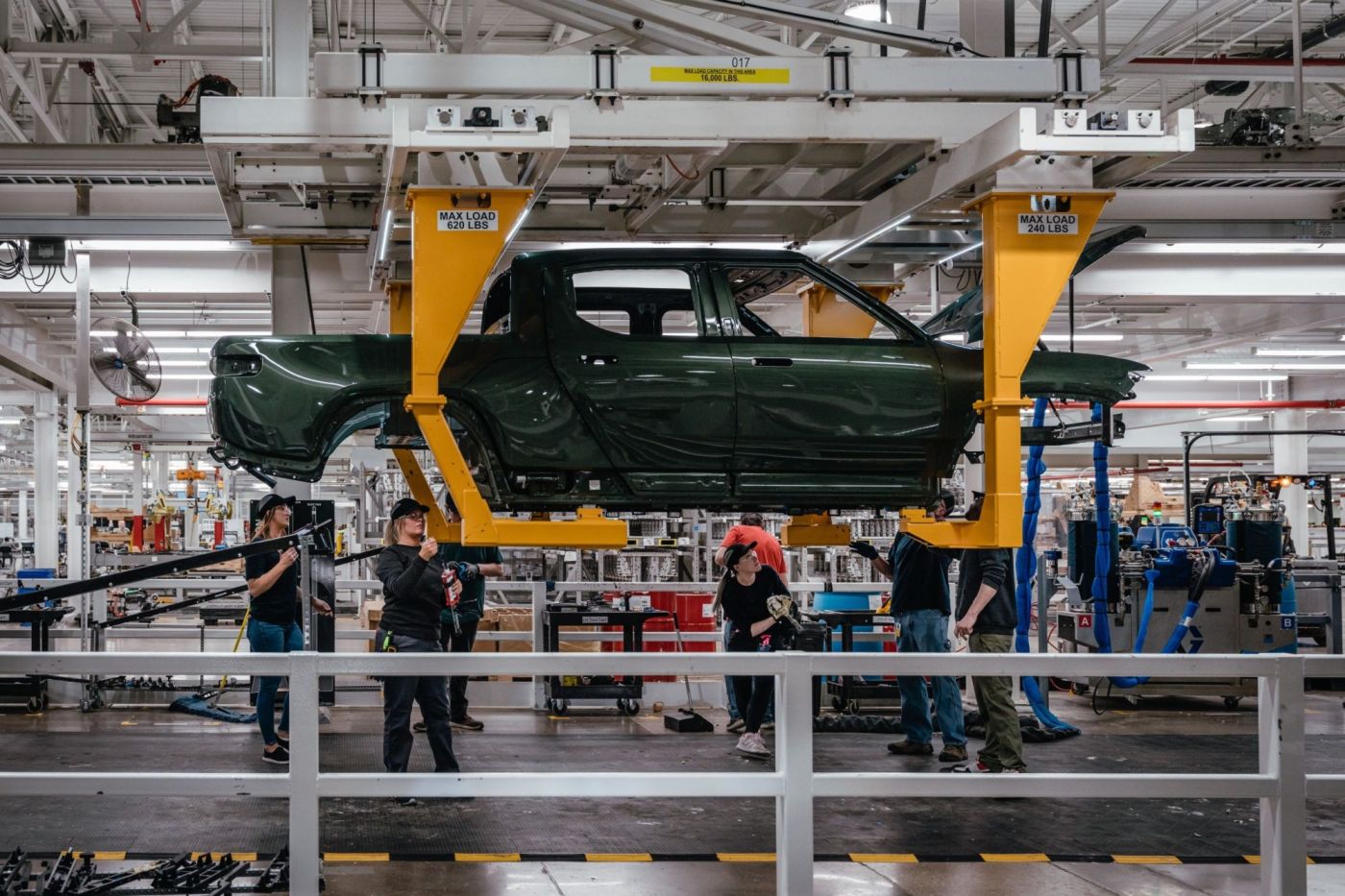By Esha Dey | Bloomberg
Shares of Irvine-based Rivian Automotive are tanking more than 15% as some early stakeholders get their first chance to unload shares on Monday.
Selling restrictions on certain Rivian insiders and investors ended Sunday, freeing up a sizable chunk of the electric-vehicle maker’s float for public trading. The stock had already collapsed 82% from its November high through Friday. Now, the focus turns to the company’s two most prominent corporate backers — Amazon.com and Ford Motor Co. — and whether they start reducing their stakes.
About 720 million Rivian shares are estimated to have become eligible for sale as the market opened. The company had a float of about 182.5 million shares as of April 11, according to Bloomberg data. Amazon owns about 17.7% of Rivian, while Ford owns 11.4%.
Few on Wall Street expect Amazon to lighten its position, but Ford is a different story. On Saturday, CNBC’s David Faber tweeted that Ford plans to sell eight million Rivian shares through Goldman Sachs.
Related links
Electric car buying: What you need to know now and in the future
Where did Rivian’s electric truck come from? It’s a long, messy road
Will Irvine-based Rivian be the ‘Tesla of trucks?’
Review: $73,000 electric Rivian R1T is cute but not a work truck
Why Southern California is a new EV mecca, with Rivian, Lordstown, and Karma in Irvine
“We would not be surprised by a stake sale/reduction by Ford post-Rivian’s lockup expiration,” Robert W. Baird analyst George Gianarikas wrote in a note on May 1. Ford, which invested $1.2 billion in Rivian, has been non-committal about its investment, and its own electric pickup truck, the F150 Lightning, is having early success, he said. Rivian is also making an electric pickup.
“We’ll look at everything,” Ford’s Chief Executive Officer Jim Farley said of his company’s Rivian stake in a Bloomberg TV interview in January. “Everything is on the table.”
“We haven’t been/aren’t presently commenting on Rivian, including about CNBC’s report,” a Ford spokesman said Monday in an emailed statement.
Amazon also declined to comment on its plans. Gianarikas said he does not expect the e-commerce giant to reduce its stake, pointing to its order of 100,000 Rivian electric delivery vehicles. Indeed, in its statement to Bloomberg Amazon said that it was “committed” to work with Rivian to put those electric delivery vehicles on the road by 2030.
Irvine-based Rivian was hit by customer cancellations this week after it raised the sticker prices of its battery-electric R1T pickup by 17% and its R1S SUV by 20%, citing higher input costs and a shortage of semiconductors.(AP Photo/Paul Sancya, File)
Bottoming out
Rivian was the largest U.S. IPO of 2021. It went public amid great fanfare as investors thirsted for EV companies with a growing push from governments and policymakers around the world to move toward clean transportation options. Enthusiasm peaked within days of its Nov. 10 public debut, driving its market capitalization to over $150 billion.
Related Articles
GM to offer ‘electrified’ Corvette as early as next year
Tesla Autopilot stirs alarm as ‘disaster waiting to happen’
A look inside Rivian’s new EV factory: Constrained by a lack of chips and slow going
California unveils measure to ban new gasoline-fueled cars
Since then, however, the stock has cratered from a high of $172 on Nov. 16 to around $25 as market sentiment soured on riskier growth stocks, with rising inflation and Federal Reserve interest-rate hikes increasing the lure of haven assets. In addition, supply-chain shortages and soaring raw material costs have crippled new EV companies, forcing them to lower production targets and making their valuations look even more expensive.
Of course, Rivian isn’t the only IPO from last year that has faltered. Other high-profile stocks that made their trading debuts in 2021 like Robinhood Markets Inc., Coinbase Global Inc., Coupang Inc., Didi Global Inc., Globalfoundries Inc., Nu Holdings Ltd. and Bumble Inc. are deeply in the red this year.
While IPO lockup expiries typically lead to more volatility and weakness in stocks, they can have an upside. At times they can serve as a “clearing event” by removing uncertainties, thereby driving the share price higher, Gianarikas said in an interview.
In addition, the stock’s severe selloff could deter big stakeholders from selling near a low.
“As an investor Ford may be taking a longer-term view, and may not want to sell at the bottom,” Edward D. Jones analyst Jeff Windau said.





